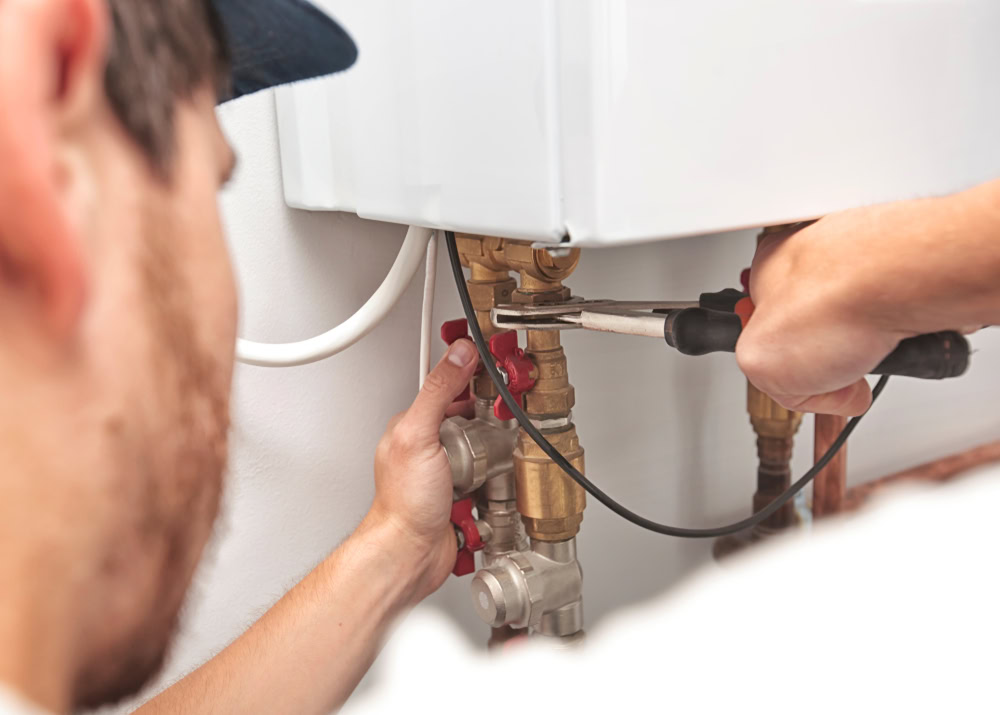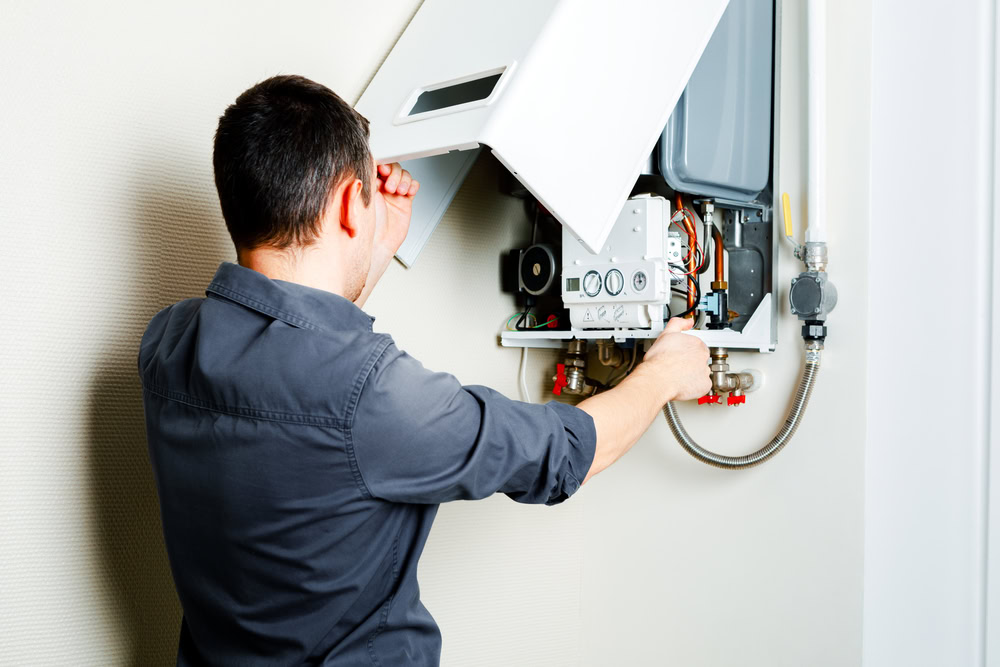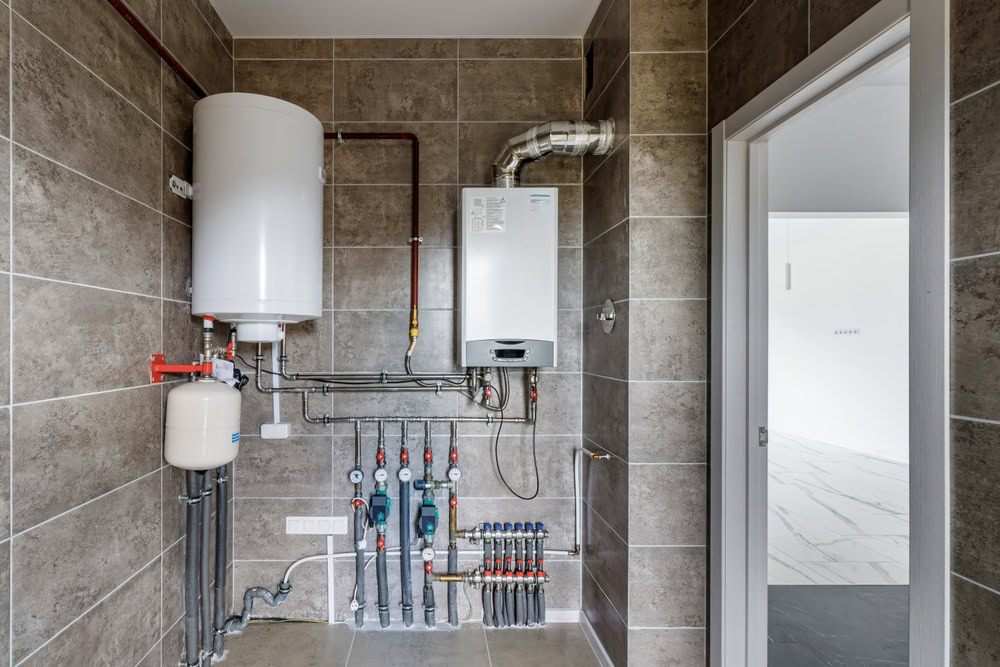Summary:
Annual Boiler Maintenance: The Foundation of Reliable Heating
Most boiler manufacturers and heating professionals recommend annual boiler maintenance as the baseline for keeping your system operational. This once-yearly service tackles the essential tasks that prevent major breakdowns and maintain efficiency.
Annual maintenance covers cleaning internal components, checking safety systems, testing controls, and spotting potential issues before they turn into expensive emergencies. For most homeowners in Queens, NY and Long Island, NY, this yearly schedule provides solid protection for newer boilers operating under normal conditions.
But here’s what many homeowners don’t realize: annual maintenance isn’t always enough. Your specific circumstances might demand more frequent attention, especially given the demanding winters in our area.

When Your Boiler Needs More Than Annual Service
Several factors push your boiler beyond the standard annual maintenance schedule. Age tops the list—boilers over 15 years old typically benefit from twice-yearly inspections, especially before and after heating season.
Heavy usage changes everything. If your boiler runs constantly during Queens, NY and Long Island, NY winters, or if you have a large home with high heating demands, more frequent gas boiler maintenance helps catch wear issues early. Commercial properties and multi-family buildings almost always require more than annual service due to their intensive usage patterns.
Environmental factors in our area accelerate maintenance needs too. Properties near the water face salt air exposure that corrodes components faster than inland homes. Areas with hard water experience more mineral buildup, requiring additional cleaning and inspection.
Recent repairs or system modifications might also warrant increased monitoring. If you’ve had major boiler work done, scheduling a follow-up inspection within six months ensures everything operates correctly. It also identifies any issues with the repair work before they become bigger problems.
The key is recognizing when your specific situation demands more attention than the standard schedule provides. We can evaluate your system’s individual needs and recommend the right frequency for your circumstances.
Perfect Timing: When to Schedule Boiler Service in Queens & Long Island
Timing your boiler maintenance correctly saves money and prevents emergency situations. The optimal window for annual service runs from April through August, well before you need your heating system for winter.
Spring and summer scheduling offers real advantages. Heating contractors have better availability and flexibility with appointments, since most homeowners wait until fall to think about their heating systems. This means you schedule service at your convenience rather than competing for emergency slots when everyone else needs help.
Early maintenance provides adequate time for necessary repairs. If we discover issues requiring parts or extensive work, you have months to address them before cold weather hits. Wait until fall and you’re potentially facing delays when contractors are swamped and parts may be backordered.
Summer service lets you test your system thoroughly before you actually need it. We can run the boiler through its full cycle, check all safety systems, and ensure everything operates correctly while the weather is still mild. No surprises when the first cold snap arrives.
For properties requiring twice-yearly gas boiler maintenance, consider scheduling service in late spring and early fall. This approach provides maximum protection while avoiding peak demand periods when service costs more and availability shrinks.
Don’t wait until the first cold snap to discover your boiler needs attention. By then, you’re competing with every other homeowner who delayed their maintenance, and emergency service calls cost significantly more than planned maintenance visits.
What Determines Your Boiler Maintenance Schedule
Your boiler’s maintenance needs aren’t determined by a calendar alone. Several specific factors influence how often your system requires professional attention, and understanding these helps you create the right service schedule.
System age, usage patterns, water quality, and environmental conditions all play roles in determining optimal maintenance frequency. Recognizing how these factors affect your particular setup helps you avoid both under-maintaining and over-maintaining your boiler.
Let’s break down exactly what influences your maintenance schedule and why it matters for Queens, NY and Long Island, NY homeowners.

How Boiler Age and Usage Affect Maintenance Frequency
Boiler age is the single most important factor determining maintenance frequency. Systems under 10 years old with proper installation typically perform well with annual service, assuming normal residential usage. These newer units have modern components designed for reliability and efficiency.
Boilers between 10-15 years old occupy middle ground where annual maintenance remains adequate for most homes. But you should pay closer attention to performance changes. Any unusual noises, inconsistent heating, or efficiency drops warrant additional inspection regardless of your regular schedule.
Systems over 15 years old almost always benefit from twice-yearly boiler maintenance. Older boilers have components that wear faster and may not operate as efficiently as when new. The additional service catches age-related issues before they cause complete system failure.
Usage patterns significantly impact maintenance needs too. Homes that run their boilers heavily during Long Island, NY’s harsh winters put more stress on system components. Large homes, properties with poor insulation, or buildings with high hot water demands work their boilers harder than average.
If your boiler runs almost continuously during winter months, or if you notice it cycling on and off frequently, increased maintenance ensures reliable operation. Commercial properties, apartment buildings, and large residential properties typically require more frequent service due to their intensive usage patterns.
The combination of age and usage creates your system’s specific maintenance profile. A 20-year-old boiler in a small, well-insulated home might need less frequent attention than a 10-year-old unit working hard to heat a large, drafty house. We can help you determine where your system falls on this spectrum.
Local Environmental Factors That Affect Your Boiler
Queens, NY and Long Island, NY’s unique environmental conditions affect boiler maintenance needs in ways that homeowners in other regions don’t face. Understanding these local factors helps you adjust your maintenance schedule appropriately.
Salt air exposure poses a significant concern for properties near the water. The corrosive effects of salt accelerate wear on boiler components, particularly external connections, venting systems, and exposed metal parts. Homes within a few miles of the coast often benefit from more frequent inspections to catch corrosion issues early.
Water quality varies significantly across Queens, NY and Long Island, NY, and hard water creates additional maintenance challenges. High mineral content leads to scale buildup inside your boiler, reducing efficiency and potentially causing component damage. If your area has hard water, your boiler may need more frequent cleaning and inspection to prevent mineral-related problems.
Flooding and storm surge risks in certain areas influence maintenance needs too. Properties that have experienced flooding, even minor basement water intrusion, should have their boilers inspected more frequently. This ensures no water damage has affected system components or safety features.
Air quality issues, particularly in more urban areas of Queens, NY, can affect boiler performance. Dust, pollution, and other airborne contaminants clog filters and affect combustion air quality. Systems in these areas may require more frequent filter changes and cleaning.
Local utility infrastructure also plays a role. Areas with frequent power outages or gas supply fluctuations put additional stress on boiler systems as they cycle on and off more frequently than normal. This increased cycling accelerates component wear and warrants more frequent gas boiler maintenance.
Working with us as your local heating contractor familiar with Queens, NY and Long Island, NY conditions ensures your maintenance schedule accounts for these regional factors that affect your boiler’s performance and longevity.
Your Next Steps for Reliable Boiler Maintenance
The right maintenance schedule for your Queens, NY or Long Island, NY boiler depends on your specific situation, but annual service represents the absolute minimum for reliable operation. Factor in your system’s age, usage patterns, and local environmental conditions to determine if you need more frequent attention.
Schedule your boiler maintenance during spring or summer months to avoid the fall rush and ensure adequate time for any necessary repairs. This proactive approach prevents emergency breakdowns during peak heating season and helps maintain your system’s efficiency and safety.
Remember that proper maintenance isn’t just about preventing breakdowns—it’s about protecting your investment, maintaining energy efficiency, and ensuring your family’s comfort and safety throughout Long Island’s demanding winters. When you’re ready to schedule your boiler maintenance, contact us at Excellent Air Conditioning and Heating Service for professional service tailored to your system’s specific needs.





